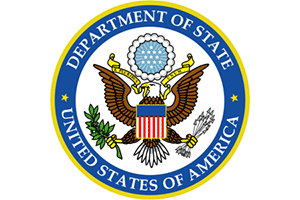Early Education Jobs In Indonesia
 Quality early care is essential to children’s healthy growth. The information about the period of time spent at an exhibit is interesting. Every time I’ve arranged a discipline journey, or taken my youngsters for a day journey, we’ve prepared by focusing on one animal or group of animals (Animals from Africa, or Animal that stay below the ground). When we go to the zoo, we spend extra time at that exhibit as we observe that animal. The other displays we might visit only briefly (can’t go away with out saying “hello” to the elephants). Focusing on totally different animals with each go to retains the zoo an interesting place to visit, and a place to study.
Quality early care is essential to children’s healthy growth. The information about the period of time spent at an exhibit is interesting. Every time I’ve arranged a discipline journey, or taken my youngsters for a day journey, we’ve prepared by focusing on one animal or group of animals (Animals from Africa, or Animal that stay below the ground). When we go to the zoo, we spend extra time at that exhibit as we observe that animal. The other displays we might visit only briefly (can’t go away with out saying “hello” to the elephants). Focusing on totally different animals with each go to retains the zoo an interesting place to visit, and a place to study.
Though dad and mom are the largest educational affect within the first few years, busy lifestyles, economic pressures and time constraints have created a society that’s increasingly reliant on pre-faculty amenities – not solely … Read more
 Particular schooling inclusion signifies the participation of particular training students in common schooling classrooms and provision of help providers to those students. See. Children’s Perseverance in College Activities†by Evelyn Trimborn, eHow Contributor. Brigh Hub. Elizabeth Wistrom &ccrzadkiewicz. Why do College students Drop Out of Faculty?†Feb. eight, 2012. August 21, 2012. Kirsten Nunez, MS is a well being and way of life journalist based mostly in Beacon, New York. Since 2014, she has contributed to over 15 digital publications. Her work has appeared on diet and well being web sites such as SparkPeople, CureJoy, and Healthline. Kirsten has a Master of Science in Nutrition and Bachelor of Science in Dietetics.
Particular schooling inclusion signifies the participation of particular training students in common schooling classrooms and provision of help providers to those students. See. Children’s Perseverance in College Activities†by Evelyn Trimborn, eHow Contributor. Brigh Hub. Elizabeth Wistrom &ccrzadkiewicz. Why do College students Drop Out of Faculty?†Feb. eight, 2012. August 21, 2012. Kirsten Nunez, MS is a well being and way of life journalist based mostly in Beacon, New York. Since 2014, she has contributed to over 15 digital publications. Her work has appeared on diet and well being web sites such as SparkPeople, CureJoy, and Healthline. Kirsten has a Master of Science in Nutrition and Bachelor of Science in Dietetics. Kids like to play, and it could only make sense that they’d study best doing what they love most. Even the disrespectful, dimwitted zoo visitor that makes jokes concerning the animals and will get upset that a sure animal is just not seen on a regular basis nonetheless has to pay admission that will assist conservation efforts economically. While not everybody will profit to the identical extent of another, or in any respect, the percentage of people that do still depend.
Kids like to play, and it could only make sense that they’d study best doing what they love most. Even the disrespectful, dimwitted zoo visitor that makes jokes concerning the animals and will get upset that a sure animal is just not seen on a regular basis nonetheless has to pay admission that will assist conservation efforts economically. While not everybody will profit to the identical extent of another, or in any respect, the percentage of people that do still depend.